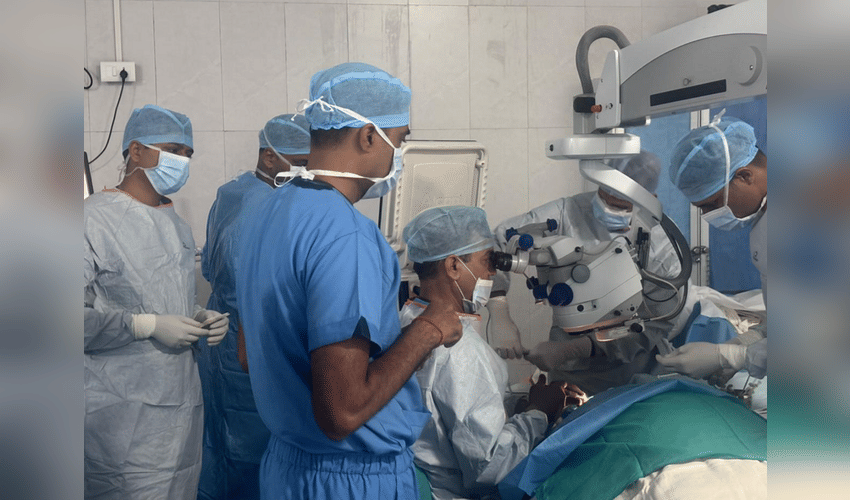News
Restoring Sight: Indian Army Doctors And Civilians After Operation Sindoor

In the remote and rugged borderlands of Jammu and Kashmir, countless civilians had been living in the shadow of darkness, their vision diminished by both conflict and neglect. Into this urgent need stepped the Advanced Surgical Eye Camp at Command Hospital Northern Command, Udhampur—a monumental initiative aimed at restoring sight and hope.
The camp successfully screened 1,500 individuals, including army personnel, dependents, Veer Naris (war widows), and local civilians. Led by Major General Sanjay Sharma, Commandant of Command Hospital Udhampur, a team of ophthalmologists conducted comprehensive screenings across the operational areas of Jammu and Kashmir, mobilizing patients from remote districts such as Poonch, Rajouri, Doda, Kishtwar, Ramban, Jammu, and Udhampur.
The camp’s crowning achievement was the deployment of cutting-edge ophthalmological equipment, enabling advanced cataract, retina, and vitreous surgeries. Among the beneficiaries was Surinder Singh, a 72-year-old from Poonch, who had endured blindness for 2–3 years and the tragic losses of neighbors during Operation Sindoor. Restored to sight, he became an active advocate, encouraging others impacted by the conflict to seek care. Similarly, Abdullah Shafeeq, a 56-year-old retired soldier from Mendhar, played a key role in facilitating access to these specialised services. Another inspiring beneficiary was 96-year-old Rajkumari Devi, who regained the priceless gift of clear vision.
Operation Sindoor, launched on May 7 after the Pahalgam terror attack that claimed 26 civilian lives, targeted terror infrastructure across the Line of Control and inside Pakistan. Pakistani retaliatory fire led to a four-day conflict, ceasing on May 10. The camp was conceived in response to Defence Minister Rajnath Singh’s directive, following a request from Lieutenant Governor Manoj Sinha. Acting swiftly, Singh instructed Army Chief General Upendra Dwivedi to ensure its successful execution in Udhampur. Oversight was entrusted to Lieutenant General Prateek Sharma, Northern Command Army Commander, highlighting the dual aim of providing expert care and demonstrating the Indian Army’s compassionate engagement.
Brigadier Sanjay Kumar Mishra, a distinguished ophthalmologist of the Army Medical Corps, led the surgical team. He, along with highly skilled paramedical staff, performed over 400 complex procedures, including cataract, glaucoma, and retinal surgeries. The camp, which spanned from Dehradun to Jaipur, Bagdogra, and finally remote villages near Jammu, ultimately delivered over 2,000 sight-restoring surgeries despite extreme logistical challenges.
Ophthalmologists and support staff faced immense hurdles: transporting delicate, high-tech equipment across vast distances, converting basic community halls into sterile operating theatres, and managing inconsistent power and sanitation in remote areas. Coupled with the physical and mental demands of performing back-to-back surgeries on mature cataracts, the team worked tirelessly to earn patient trust and ensure proper post-operative care. Rooted in the ethos of Operation Sadbhavna, the camp exemplified the Army’s dedication to national service, blending medical excellence with a profound human touch.



